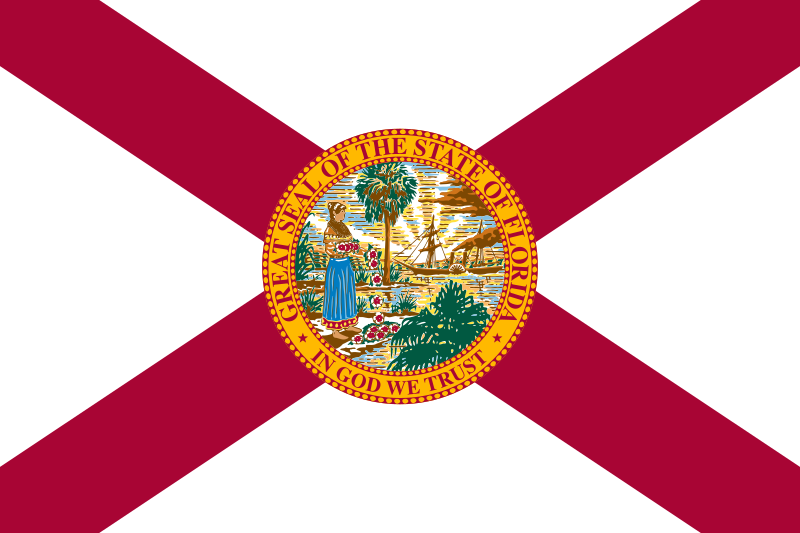Florida Initiative 21-13, sponsored by Florida Education Champions, was cleared for signature gathering on June 23, 2021.
The measure would authorize sports betting at sports venues, pari-mutuel facilities, and online in Florida. The Florida State Legislature would need to pass legislation to implement the constitutional amendment such as providing for licensing, regulation, consumer protection, and taxation. Under the amendment, all online sports betting tax revenue would be dedicated to the Educational Enhancement Trust Fund of the Department of Education.
Online sports betting could be conducted by (a) Native American tribes and (b) entities that have existed for at least one year and that have conducted sports betting in at least 10 other states under the amendment. Such entities could begin conducting sports betting no later than eight months after the amendment is effective. Other entities or organizations could conduct sports betting no sooner than 20 months after the amendment is effective if authorized by state law.
In 2017, the U.S. Supreme Court heard arguments in a case, Murphy v. NCAA (originally Christie v. NCAA), regarding the legality of a law implementing New Jersey Public Question 1 (2011). On May 14, 2018, the U.S. Supreme Court ruled 7-2 that the federal government could not require states to prohibit sports betting, thereby overturning the federal ban on sports betting. The ruling allowed states to legalize sports betting if they wish. As of June 2021, sports betting was legal, or laws to legalize had been approved, in 30 states and D.C.
In 2018, Florida voters approved Amendment 3, which gave voters the “exclusive right to decide whether to authorize casino gambling in the State of Florida.” Amendment 3 made the citizen initiative process “the exclusive method of authorizing casino gambling,” meaning the Florida State Legislature is not permitted to authorize casino gambling through statute or through referring a constitutional amendment to the ballot. The amendment is not applicable to compacts between the state and Native American tribes under the Federal Indian Gaming Regulatory Act that authorize gaming on tribal lands.
Florida made a compact with the Seminole Tribe in April 2021 that gave the Tribe the exclusive ability to conduct sports betting in the state. Under the compact, the tribe would conduct sports betting and would be required to give a minimum of $400 million per year to the state of Florida for the next 30 years, until 2051. Under the compact, sports betting would be available online and at pari-mutuel facilities to anyone in the state and would be “deemed at all times to be exclusively conducted by the tribe at its facilities” where the sportsbooks and servers are located.
The Indian Gaming Regulatory Act (IGRA) of 1988 requires that any gaming activities provided for through gaming compacts between Indian tribes and state governments occur only on Indian lands, defined as “all lands within the limits of any Indian reservation.” Florida’s 2021 compact with the Seminole Tribe contains a severability clause, providing that, “[i]f at any time the Tribe is not legally permitted to offer Sports Betting to Patrons physically located in the State but not on Indian lands,” then the rest of the compact would remain in effect, meaning sports betting would then be available only on tribal lands.
Florida Education Champions said, “Our amendment will allow more competition and enable Floridians to use their favorite sports betting platform. [It] will bring competitive sports betting to Florida and allow fans to use their favorite online sports betting platforms, such as DraftKings or FanDuel. That means no monopolies or limited options.” Florida Education Champions spokesperson Christina Johnson said the amendment would “generate substantial revenue that can be directed to Florida’s public education system — without raising taxes.”
Seminole Tribe spokesperson Gary Bitner said, “This is a political Hail Mary from out-of-state corporations trying to interfere with the business of the people of Florida. They couldn’t stop Florida’s new gaming compact, which passed by an overwhelming 88 percent ‘yes’ vote from Florida’s elected legislators and enjoys 3-to-1 support from Floridians and guarantees $2.5 billion in revenue sharing. The guarantee is the largest commitment by any gaming company in U.S. history.”
To qualify for the 2022 ballot, proponents must submit 891,589 valid signatures. The deadline for signature verification is February 1, 2022. As election officials have 30 days to check signatures, petitions should be submitted at least one month before the verification deadline. Proposed measures are reviewed by the state attorney general and state supreme court after proponents collect 25% of the required signatures across the state in each of one-half of the state’s congressional districts (222,898 signatures for 2022 ballot measures). After these preliminary signatures have been collected, the secretary of state must submit the proposal to the Florida Attorney General and the Financial Impact Estimating Conference (FIEC). The attorney general is required to petition the Florida Supreme Court for an advisory opinion on the measure’s compliance with the single-subject rule, the appropriateness of the title and summary, and whether or not the measure “is facially valid under the United States Constitution.”
Last month, an initiative was certified for the California 2022 ballot that would legalize sports betting at American Indian gaming casinos and licensed racetracks in California.
Additional Reading:


